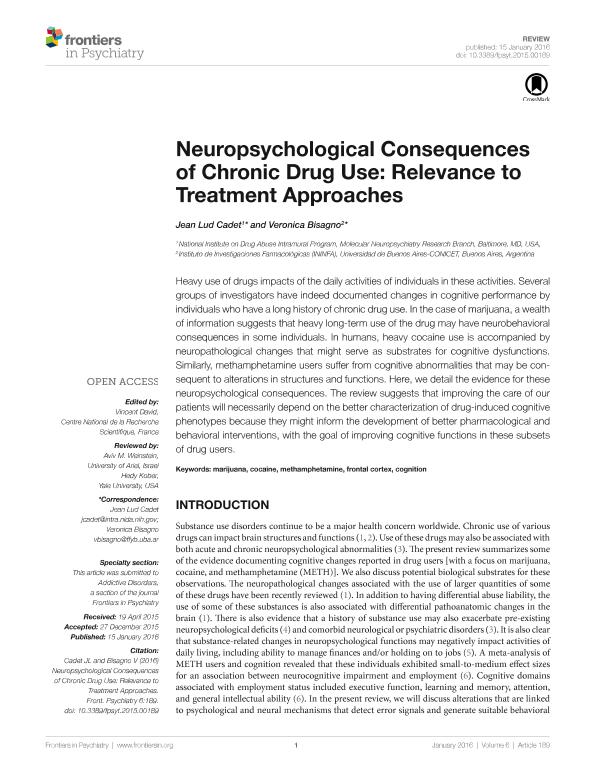Artículo
Neuropsychological consequences of chronic drug use: Relevance to treatment approaches
Fecha de publicación:
01/2016
Editorial:
Frontiers Research Foundation
Revista:
Frontiers in Psychiatry
ISSN:
1664-0640
Idioma:
Inglés
Tipo de recurso:
Artículo publicado
Clasificación temática:
Resumen
Heavy use of drugs impacts of the daily activities of individuals in these activities. Several groups of investigators have indeed documented changes in cognitive performance by individuals who have a long history of chronic drug use. In the case of marijuana, a wealth of information suggests that heavy long-term use of the drug may have neurobehavioral consequences in some individuals. In humans, heavy cocaine use is accompanied by neuropathological changes that might serve as substrates for cognitive dysfunctions. Similarly, methamphetamine users suffer from cognitive abnormalities that may be consequent to alterations in structures and functions. Here, we detail the evidence for these neuropsychological consequences. The review suggests that improving the care of our patients will necessarily depend on the better characterization of drug-induced cognitive phenotypes because they might inform the development of better pharmacological and behavioral interventions, with the goal of improving cognitive functions in these subsets of drug users.
Palabras clave:
Cocaine
,
Cognition
,
Frontal Cortex
,
Marijuana
,
Methamphetamine
Archivos asociados
Licencia
Identificadores
Colecciones
Articulos(ININFA)
Articulos de INST.DE INVEST.FARMACOLOGICAS (I)
Articulos de INST.DE INVEST.FARMACOLOGICAS (I)
Citación
Cadet, Jean Lud; Bisagno, Veronica; Neuropsychological consequences of chronic drug use: Relevance to treatment approaches; Frontiers Research Foundation; Frontiers in Psychiatry; 6; 1-2016; 1-10
Compartir
Altmétricas




